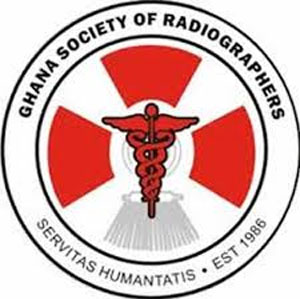Ghana Society of Radiographers (GSR) has held a three-day national scientific biennial conference for both members and non-members as part of efforts to drum home their challenges.
The conference, which was on the theme: ‘Achieving the Sustainable Development Goals in Healthcare through Quality Assurance in Medical Imaging and Radiation Therapy’, attracted about 100 participants who were mainly sensitised on the need to prevent avoidable accidents in the course of their work and improve quality healthcare delivery.
Prof. Mary Boadu, director of the Radiological & Medical Sciences Research Institute of Ghana Atomic Energy Commission, in her address explained that sustainable development cannot be possible if health professionals are not up to their game.
“It is being estimated that the use of radiation in medical diagnostic examination causes over 95 per cent man-made radiation exposure, it is the highest man-made source of exposure,” she revealed.
Prof. Boadu stressed that in 2012, it was estimated that over 14 million new cancer cases and 8.2 million cancer-related deaths were recorded, according to the International Agency for Research on cancer.
These figures, according to her, are expected to increase to over 21 million new cancer cases and 13 million deaths by the year 2030.
She explained that since exposure to radiation has the potential to increase the risk of cancer, minimising exposure to radiation emitting devices whilst optimising image quality is necessary to protect public health.
The president of GSR, Prince Rockson, also added that to obtain quality images for diagnoses, radiographers must use their expertise to properly expose patients to the optimum doses of radiation.
“We need to appreciate trained and registered professional radiographers to handle patients and also carryout quality control programmes in the various radiography departments and units,” he indicated.
Mr Rockson called on government to employ more trained and registered professional radiographers to man the various health facilities that have been hit by shortage of professional personnel.
He stated that Ghana Health Service (GHS) recently rolled out the use of ICT in the TB control project and deployed quality assurance data software packages which have the potential to fight against TB in the country.
Mr Rockson described the current situation as alarming, adding that non-registered professional radiographers would not be given the opportunity to provide healthcare services in the health facilities in the country.
From Daniel Bampoe, Koforidua


